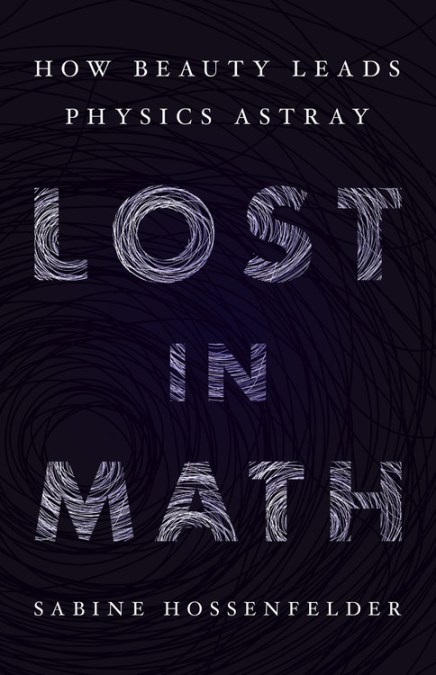 From Sabine Hossenfelder, author of Lost in Math: How Beauty Leads Physics Astray, at her blog Back(re)action:
From Sabine Hossenfelder, author of Lost in Math: How Beauty Leads Physics Astray, at her blog Back(re)action:
It occurred to me some years ago, however, that there is a much simpler example for how reductionism can fail. It can fail simply because the extrapolation from the theory at short distances to the one at long distances is not possible without inputting further information. This can happen if the scale-dependence of a constant has a singularity, and that’s something which we cannot presently exclude.
With singularity I here do not mean a divergence, ie that something becomes infinitely large. Such situations are unphysical and not cases I would consider plausible for realistic systems. But functions can have singularities without anything becoming infinite: A singularity is merely a point beyond which a function cannot be continued.
I do not currently know of any example for which this actually happens. But I also don’t know a way to exclude it.
Now consider you want to derive the theory for the large objects (think humans) from the theory for the small objects (think elementary particles) but in your derivation you find that one of the functions has a singularity at some scale in between. This means you need new initial values past the singularity. It’s a clean example for a failure of reductionism, and it implies that the laws for large objects indeed might not follow from the laws for small objects. More.
Note her qualification:
It will take more than this to convince me that free will isn’t an illusion, but this example for the failure of reductionism gives you an excuse to continue believing in free will.
Of course, the critical question isn’t whether Hossenfelder does or doesn’t believe free will to be an illusion. Daniel Dennett believes consciousness to be an illusion. It’s a high stakes game.
The point she makes that is worth noting is that the laws of physics don’t rule out free will. But that is just a well for the laws of physics because, if Dennett is right and consciousness is an illusion, then the “laws of physics” probably are too. The concept of evidence has been rendered powerless.
Her explanations are admirably concise and free of question-begging.
See also: Sabine Hossenfelder: Particle physics now belly up. As it happens, her book is a solid string of 1’s at Amazon
Neuroscientist: Free will is an illusion but we should believe we have it
Neuroscientist debunks hype about no free will, etc.
GP, Mike Pence and Free Will
At Physics Central: How human beings can have free will as complex, purely physical systems
Do the defects of real numbers open the door to free will in physics?
and
How can we believe in naturalism if we have no choice?